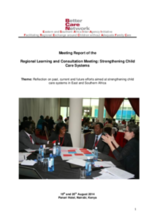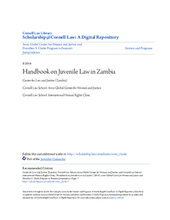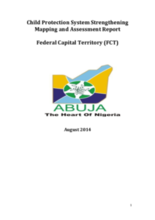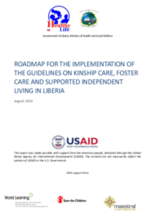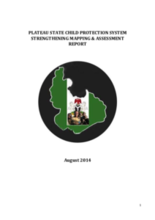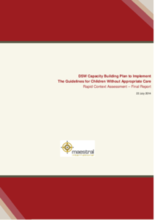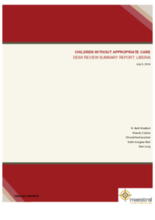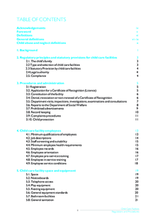Displaying 1101 - 1110 of 1798
This report provides an overview of a two-day regional consultancy on strengthening child care systems in Eastern and Southern Africa.
This article analyses the interactions among global and national actors in the policy dynamics of Cambodia’s National Social Protection Strategy (NSPS); it is intended to disentangle the complex politics of global social policy at the national level.
This handbook offers a compendium of Zambian juvenile law, including the processing of juveniles in the criminal justice system.
The main objective of the mapping and assessment is to identify the major gaps in the current child protection system in each state, which will provide the basis for specific suggestions on how to improve the existing child protection system at the state and LGA level.
This “roadmap” document outlines the recommended implementation strategies and activities for strengthening family- and community-based alternative care in Liberia. It accompanies the Guidelines on Kinship Care, Foster Care and Supported Independent Living (the Guidelines) and the Capacity Building Plan to Implement the Guidelines (CBP).
The Federal Government in 2010 together with the Lagos State Government embarked on a pilot test to map and assess the existing components of Child Protection in Lagos and Child Frontiers was recruited to undertake the mapping and assessment.
This Context Assessment, produced by Maestral International, aims to collect and review all relevant information to support the development of the Department of Social Welfare’s (DSW) institutional capacities to execute the new framework for alternative care in Liberia.
The Future of Children, a collaboration of Princeton University’s Woodrow Wilson School of Public and International Affairs and the Brookings Institute, has launched a new project entitled “The Child & Family Blog.”
This report provides an overview of Liberia’s alternative care context, identifies key stakeholders who are involved in the child protection field in the country, and summarizes the Child Care Legal and Policy Framework related to alternative care.
This document contains a set of regulations and procedures which the Zambian Government has established as the “Minimum Standards of Care for Child Care Facilities.”

